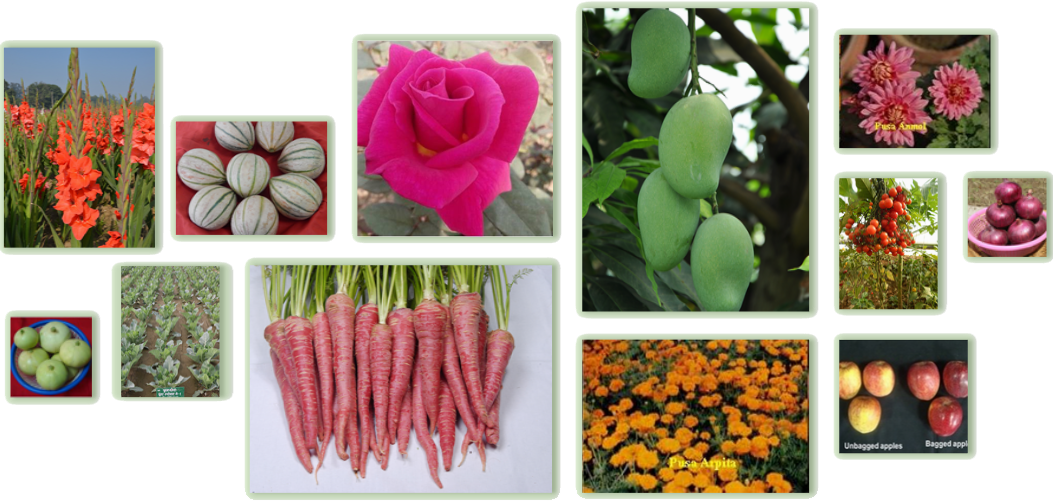Introduction
School of Horticultural Sciences is being operated with 04 major Divisions at IARI, one Unit (CPCT), 05 Regional Stations with a staff strength of 72 scientists. The School is focused mainly to develop new varieties and technologies on flowers, vegetables & fruits production. Further, protected cultivation is also one of the major focus under the School. In the recent past, a large number of promising varieties in fruits and vegetables were developed. Students of the school are trained on various aspects of production of seed and quality planting material, pre and post harvest management and environmental resolution and landscaping.
Divisions of Horticultural Science
The increasing importance of Horticultural crops in the growth, nutritional & livelihood security and vibrancy of Indian agriculture has attained focus in recent times. In recognition of this, Indian Agricultural Research Institute has established a School of Horticultural Sciences in 2012 to have more focussed and coordinated efforts in comprehensive research programs on improvement of vegetable, fruit and floricultural crops using conventional and biotechnological tools, development of production technology for open and protected environments, designing post-harvest technological options and effective dissemination of various technological options for the prosperity of farming fraternity. The Indian Agricultural Research Institute has been a pioneer in scientific research in Horticultural Science and its commercial application. The varieties/hybrids developed by this institute have saturated the entire country and of late served as a base for the development of the private vegetable seed industry in India. The YVMV resistant okra Pusa Sawani, tomato Pusa Ruby, brinjal Pusa Kranti, bottle gourd Pusa Naveen, cauliflower Pusa Snowball K-1, onion Pusa Red, carrot Pusa Rudhira have revolutionized vegetable cultivation in the country. Regular bearing mango varieties Mallika and Amrapali, suitable for high-density planting, spread across the country and continue to be in great demand. Pusa Narangi gainda and Pusa Basanti gainda made marigold cultivation popular around the country. Low-cost Pusa zero energy cool chamber became popular in extending the farm shelf life of perishable crops to fetch higher prices to the farmers.

